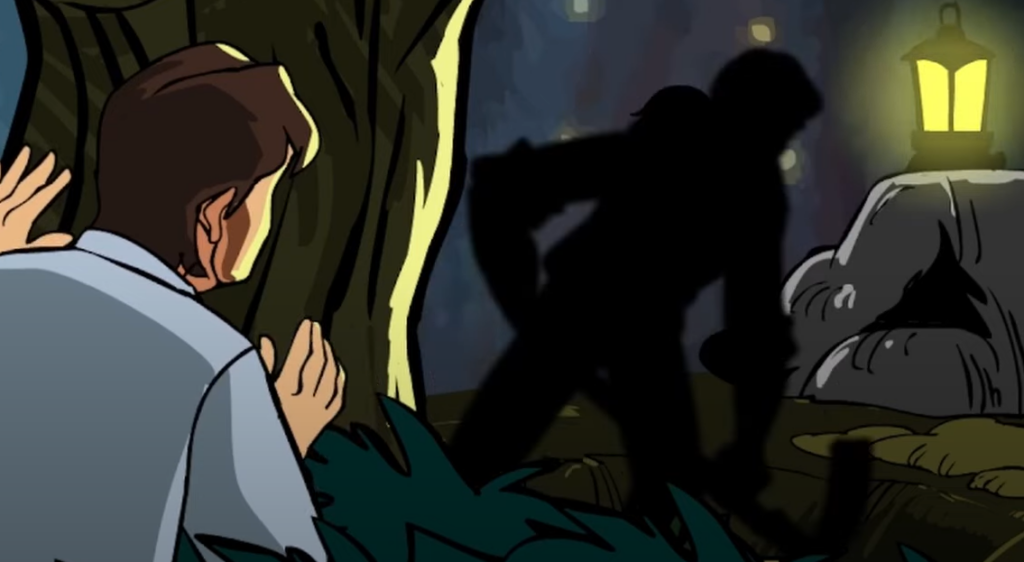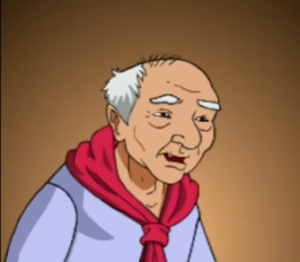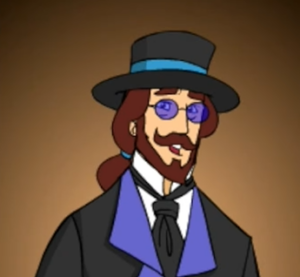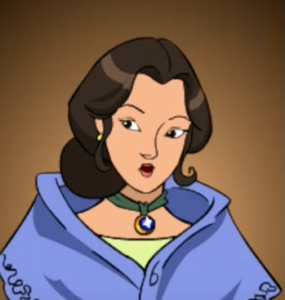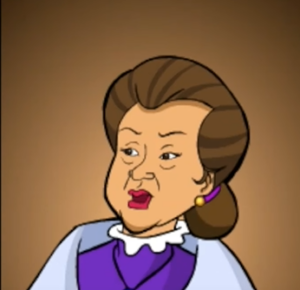El Filibusterismo (El Fili) – Chapter 7
Chapter Title: Simoun
Setting: Christmas Eve, Forest of Ibarras (San Diego)
Characters:
- Basilio
- Simoun
- Sisa (mentioned)
- Crispin (mentioned)
Plot:
Simoun tries to convince Basilio to join his cause.
Chapter Summary:
Basilio sees someone arrive behind the Balete tree. The man has a spade and starts digging, and he has a lantern that reveals him to be Simoun without his glasses.
Basilio recognizes Simoun as the one who dug the grave of his mother 13 years ago.
Basilio figures out that Simoun is Ibarra. He approaches Simoun and offers to help, explaining that Simoun helped him before. Simoun takes out a gun and asks who Basilio thinks he is talking to. Basilio says that Simoun is someone he believed to be dead and whose suffering always made him feel sympathy.
After a while, Simoun lowers the gun and says that Basilio now knows a secret that can ruin him. He explains that he should kill Basilio as he might get in the way of Simoun’s plans. Simoun explains that it would be easy because people would assume that Basilio’s death was caused by tulisanes or spirits.
Simoun says that because they both have a ‘thirst for justice’, they should help each other.
Simoun admits that he was the man from 13 years ago and that he wandered the world to become rich. Now, he plans to “destroy the system” by promoting greed. He explains that greed feeds on a dead organism like a vulture would. Through greed, Simoun promoted corruption, cruelty, anxiety, misery, and poverty. But there are people like Basilio who are pro-Hispanism. Simoun says that young people are inexperienced, naive and optimistic.
Simoun compares Hispanization to destroying the national identity. He says that by being Hispanized, the country will be full of civil wars, and always unhappy with conditions, like countries in South America. Simoun asks Basilio why they would want to add another language to the 40 dialects in the islands, and says they will just understand each other less and less.
Basilio argues that knowledge of Spanish will unite them with the government and unite all the islands.
Simouon says that Spanish will never be the common language because it cannot capture idioms and ideas unique to the Philippines. By being Hispanized, they will become truly slaves and that they will not care about their own language anymore.
Simoun says that it is good that the government wants them to keep their own language, because other countries don’t do that (like Russia and Poland), but instead, young Filipinos want to take away their own national identity.
Simoun says he watched the pro-Spanish movement become popular, and felt sad that the smart youth thought they were sacrificing themselves for a good cause but instead worked against their own country. Simoun wanted to approach them and tell them they were wrong. He tells Basilio that he wanted to destroy them.
Simoun explains that he’s letting Basilio live because he knows Simoun and knows how much he has suffered.
Simoun asks Basilio to help him by changing the minds of younger people, that they should be happy that Spain doesn’t want the Philippines to be part of its nation. Simoun says that Filipinos should mold their own individuality. They should dream of being their own a nation, not a province of Spain, and that the Spaniard should always be thought of as an invader or foreigner instead of a fellow citizen.
Basilio says Simoun is demanding too much. Basilio admits that he just signed the petition because Spanish will help his studies. His only dream is to help the sickly. Simoun says that it would be more useful to help the whole nation rather than individual people. Basilio argues that each person in a society has a role, and that his is to devote himself to science.
Simoun says that “Science is not the end of man,” but Basilio says that when humanity is enlightened and everyone is free, science will be what is left while patriotism will be considered dangerous.
Simoun says that to reach that state, there should be no tyrants and slaves, which can only be achieved if there is struggle and bloodshed. Patriotism is a tool for oppressed people who want justice, freedom and dignity.
Simoun realizes Basilio is not convinced so instead he asks what Basilio is doing for his mother and brother’s memories other than crying over their graves. Basilio gets angry and says he can’t do anything because he would just end up another victim. Simoun offers to support him but Basilio says that revenge would not bring them back. Simoun argues that revenge would mean others wouldn’t suffer the way Basilio has suffered.
Simoun says that he thought like Basilio before, but he was punished for it. He tells Basilio that the ones who killed his brother and mother will think he wants revenge so they will try to get rid of him even if he does nothing. Basilio asks how they could hate him even though they’re the ones who were evil to him. Simoun says it is natural in man to hate those he has injured.
Basilio says he just wants to live his life, but Simoun says his sons will also suffer the way he has because he did nothing. He insults Basilio as the “ideal male” who only wants a house, a woman and rice and considers himself lucky for having those.
Basilio wants to say that he is not good at political matter but that he would help if necessary. Simoun just says that he knows Basilio won’t give away his secrets because no one would believe him anyway. He says that if Basilio changes his mind, he should go to Simoun’s house at Escolta.
Simoun wonders if he said the wrong thing, and that whether serving other people has made Basilio only want to ‘survive and reproduce’. Simoun says “Have patience”. It is possible he is telling that to himself in terms of Basilio’s (lack of) decision.
Trivia:
- Simoun says to ‘have patience’, which is also Tandang Selo’s advice to Cabesang Tales.
Quotes:
Simoun: (to Basilio) I will let you live and I trust I will not regret it. You have labored, you have struggled with energetic perseverance… And like me, you have accounts to settle with society.
Simoun: You bond together so that with your efforts you can bind your country to Spain with garlands of roses, when in reality you are forging her chains harder than diamond!
Simoun: What will you be in the future? A people without character, a nation without liberty. Everything in you will be borrowed, even your very defects.
Simoun: Those among you who speak that language are indifferent to their own tongue, so much so that they neither write nor understand it. How many have I seen who pretend not to know a single word of it!
Simoun: As long as a people conserve their language they preserve the security of their liberty.
Simoun: I am the Judge come to punish a social system through its own crimes; make war against it by flattering it…
Simoun: If they refuse to teach you their language then develop your own, understand it and make it more widely known.
Simoun: Science is not the end of man.
Simoun: Patriotism can only be a crime in the oppressor nations.
Basilio: All the vindications of justice, all the vengeance of the earth, would not bring back a single lock of my mother’s hair, or renew a smile on my brother’s lips.
Simoun: Resignation is not always a virtue. It is a crime when it encourages tyrannies.
Simoun: Proprium humani ingenii est odisse quem laeseris. (It is natural in man to hate those he has injured.)
Simoun: Have patience.

